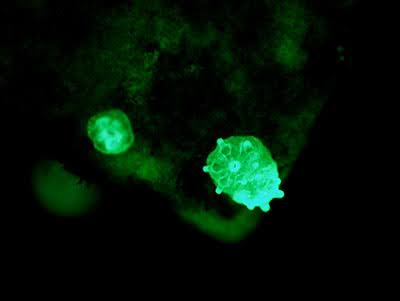
NCCOS scientists collaborated with partners at The Florida Aquarium (TFA) and the University of North Carolina, Wilmington (UNCW) to test different methods to improve fertilization rates and how exposure to stressors, such as elevated nutrients, may affect fertilization survival, development, and behavior of corals. As water temperatures along the Florida coast continue to soar, wild spawning events and successful coral reproduction on the reef becomes increasingly uncertain.
This year the group worked to study coral spawning in captivity, which the facilities at both UNCW and TFA achieved by creating conditions in aquaria that closely mimic the environmental cues that corals would experience on the wild reef, such as annual fluctuations in temperature, moon cycle, and sun exposure. Scientists are using the larvae from four Caribbean coral species (Orbicella faveolata, Pseudodpiloria strigosa, Pseudodiploria clivosa, and Colpophilia natans). Preliminary results from this work thus far are positive: some compounds used to improve fertilization appear to be effective at increasing compatibility between parents and prolonging the viability of gametes (eggs and sperm) prior to fertilization, which has the potential to greatly enhance restoration techniques that utilize sexual reproduction for producing offspring and increasing coral biomass. This work will aid in the future development of innovative treatment strategies and in determining benchmarks for water quality standards that are protective of the early life stages of corals.
